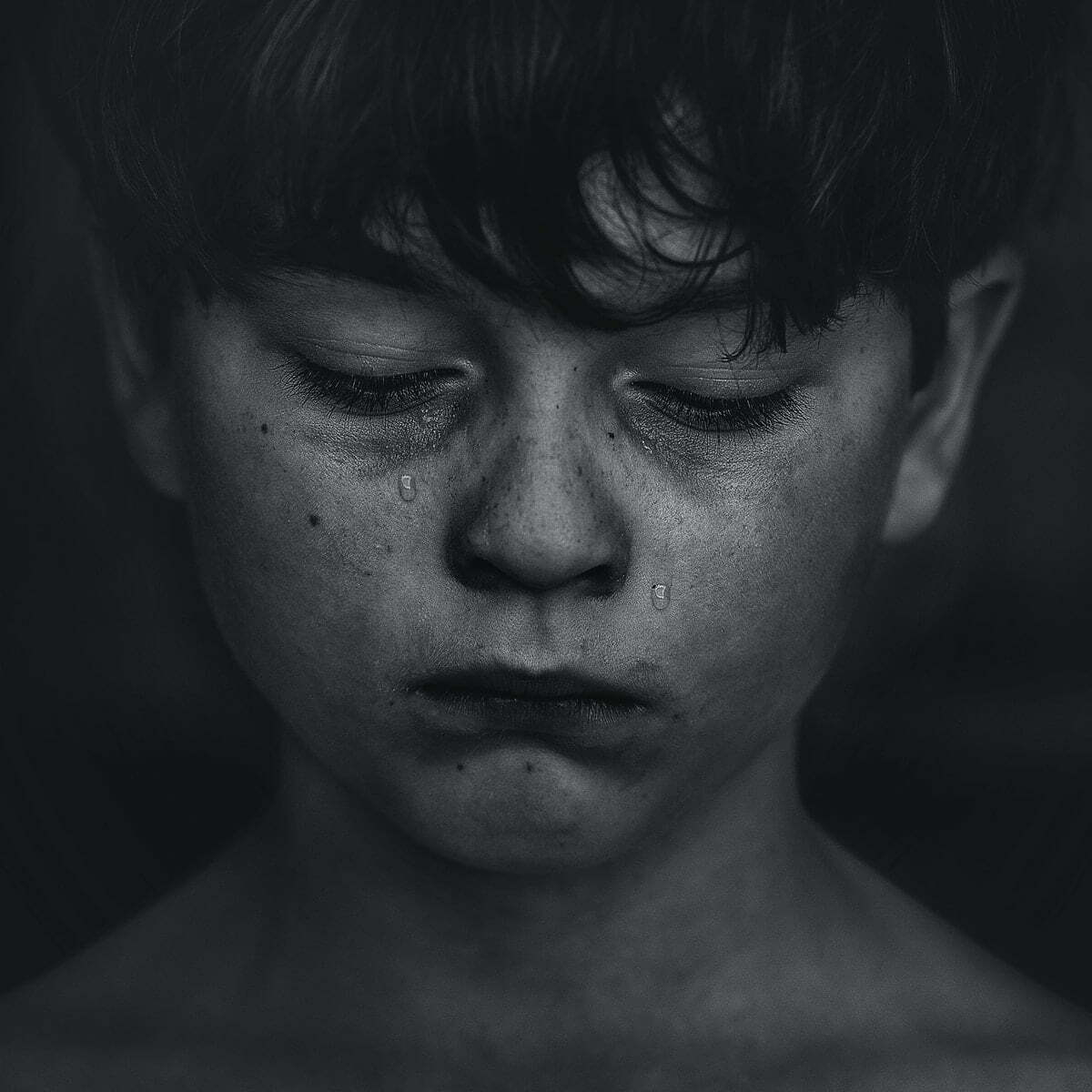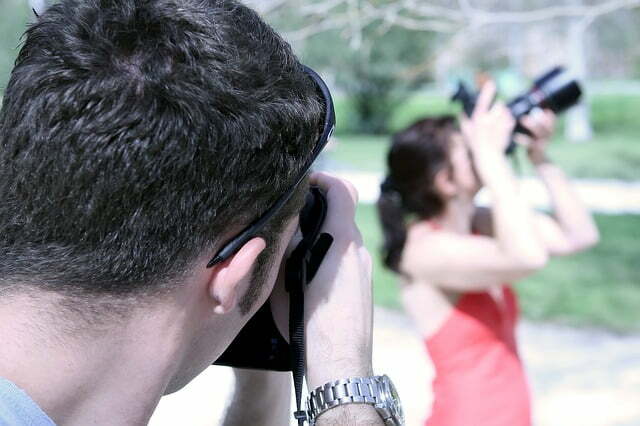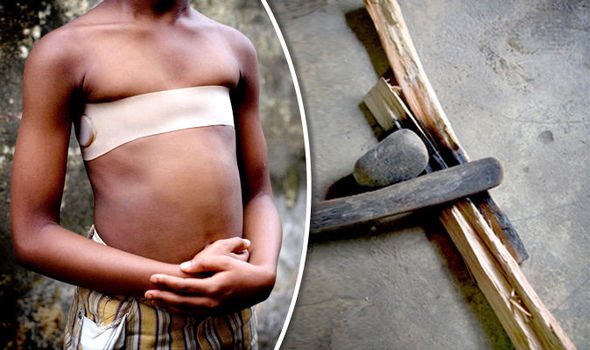30-minute read
For the last few years newspapers and online news sites have carried headlines like “Man caught by ‘paedophile hunter’ handed three-year prison term” or “Sexual predator jailed for eight years after ‘paedophile hunter’ sting” or “Grandfather caught out by ‘paedophile hunters’ posing as girl”. These are some of the more refined titles; for this type of story is a gift for the tabloid journalist who prefers a more sensationalised headline to grab the attention of their reader – “PAEDO SNARED – Perv caught by paedophile vigilantes trying to meet 11-year-old girl for sex”. Whichever way you source your news, you will now routinely come across stories about the exploits of ‘Paedophile Hunters’, as they are commonly referred to.
In September 2017 the BBC news site carried the headline “Southampton paedophile jailed after vigilante sting”. The offender, 68-year old Robert Babey had been arrested in July, following an operation by a paedophile hunter who had posed online as a 14-year old boy. When Babey turned up to meet the ‘boy’ he was met by the hunter and a BBC Inside Out film crew who were following the activities of the hunter. The confrontation was filmed and when Babey was arrested he was found in possession of sex toys. At this point there can surely be no doubt what Babey’s intention was. Had this been a real boy then it is inevitable that the child would have suffered serious sexual abuse.
When Babey appeared at Southampton Crown Court in September, he admitted the grooming offence and it also became clear that he was also in breach of an existing Sexual Harm Prevention Order. The Judge sentencing told Babey that he was “at high risk of serious harm to children”. The BBC reported that his offending history started in 1990 with a conviction for indecent assault. He was sentenced to seven years imprisonment and given a new lifetime SHPO.
I think most people would agree, a job well done. A paedophile and active sexual predator taken off the streets. Interestingly, the Judge also appeared to make reference to the Inside Out documentary, by informing Babey, “You may well have been publicly humiliated. You deserve to be”. Obviously, the context of how this was meant and said by the Judge is open to interpretation, but given that the film crew were following the exploits of a hunter, some people might take this as endorsement of the methods used to capture Babey. However, I know of at least two other case where Judge’s made it abundantly clear that they did not agree with the methods and actions of the paedophile hunters. T
When the Inside Out programme aired back in 2017, the National Police Chiefs’ Council (NPCC) criticised the activities of these Paedophile Hunters. Chief Constable Simon Bailey, the NPCC national lead for child protection said: “These vigilante groups are putting the lives of children at risk”, adding that vigilante groups are potentially compromising police operations. This is a fairly harsh indictment, bearing in mind the excellent outcome of the Babey conviction. Surely the Chief Constable got this one wrong, didn’t he? Well, he probably would have done, had he just been talking about the Babey case, but in his role as the police national lead he was clearly looking at the bigger picture, and that outlook doesn’t make great reading. For all the ‘good news stories’ out there, there are just as many adverse and negative news items. A search of Google using the term “Paedophile Hunters Headlines” return headlines like: – “Vigilante paedophile hunters ruining lives with internet stings” or “Man trapped by ‘paedophile hunter’ kills himself” or “Trio in court on paedophile hunter charges”.
One of the more recent adverse headlines came at the beginning of September. It was another Southampton based news story – “Southampton ‘paedophile hunter’ jailed for false claim”. This involved 34-year old self-styled paedophile hunter, Stephen Dure. He appeared at Southampton Magistrates’ Court accused of making an improper communication after he had falsely accused a man of being a “violent psychopath” and a “massive danger to society”. Dure, who is also known as Stevie Trap posted these comments on Facebook. He runs a site called TRAP, where he features articles from news feeds and videos of his own ‘stings’, confronting suspected paedophiles. Dure initially pleaded not guilty to the offence, stating he had never suggested that the man was a paedophile. However, this doesn’t hold much credibility, given that he has a paedophile hunting Facebook page with over 200,000 followers, is clearly known as the paedophile hunter, and also has his own YouTube paedophile hunting channel. Additionally, the victim was able to produce a screen capture of the original post which showed that the initial post carried the words “grooming teenagers”. At some stage Dure had deleted this, but by that time the damage had been done. As a result of the screen capture, Dure changed his plea to guilty. The victim claimed that as a consequence of the communication he lost his job and had a brick thrown through his window. Dure was sentenced to 15 weeks in prison.
There is a punchline to this story. The incident occurred in November 2017 and just two months earlier Dure was the featured paedophile hunter, confronting sex offender Robert Babey in the BBC Inside Out programme. Whilst there is no doubt that Babey’s conviction is safe (he pleaded guilty), Stephen Dure’s conviction highlights a number of concerns relating to the activities of paedophile hunters. Had that brick through the window been a petrol bomb, then there may well have been a more serious outcome. How many previous confrontations or online public shaming has he got wrong? For me the two cases (Babey’s and Dure’s) typify the debate surrounding paedophile hunters. Do we need them as an extra layer of child protection or are they just dangerously out of control vigilantes?
The pro paedophile hunter argument.
Earlier this year the BBC carried a news story – “Paedophile hunter’ evidence used to charge 150 suspects”. In the article the Beeb submitted a Freedom of Information (FoI) request to every police force in England and Wales asking how many people had been charged as a result of evidence provided by paedophile hunters. As is often the case with FoI’s just over half of the police forces responded (29 out of 43). The results revealed a “a greater than seven-fold rise in two years – from 20 in 2015 to 150 in 2017”. They also revealed that in 2017, 47% of cases relating to meeting a child following sexual grooming had some evidential involvement from paedophile hunters. Whilst this data does not tell us how much of an impact their evidence had or whether this led to a conviction, some would argue that the results suggest that without their input, there may well be a significant number of sexual predators still at large.
Typically, paedophile hunters tend to work in groups. A group will usually have volunteer decoys create fake profiles of children on various social networking platforms, dating sites and internet chatrooms. Posing as underage girls of boys they wait for men (and women) to engage them in conversation. Most groups will claim that their decoys are able to spot a pattern of grooming at an early stage. The decoys may have a number of different profiles on the go at any given time. They are also proficient in the character of their avatar, using language and emojis that only a teenager would use. The times they go online are also carefully planned so that they coincide with a period when a teenager would be most active. There is little point being online when a child would ordinarily be at school, therefore giving the person at the other end, a reason to think they may actually be talking to an adult.
Most groups will claim that they do nothing to entice the person into any form of sexual conversation. All they do is maintain the persona of their avatar so that the potential groomer is left in no doubt that the person they are talking to at the other end is an underage child. The decoy will collate hours upon hours of the online chat, logging anything sexual in nature, including any sexually explicit photographs or videos the abuser has sent. The groups act as private citizens and therefore are not subject to the Regulation of Investigatory Powers Act 2000 (RIPA), the law that governs how covert evidence can be obtained by public authorities such as police forces.
Where they can, the group will research their target. At this point the tactics employed differ. Some paedophile hunters pass their evidence directly to the police, whilst others agree to the groomer’s invitation to meet. At this meeting the hunters will confront the person, often filming the incident. At this point they will make a citizen’s arrest, detain the abuser, wait for the police to arrive and hand over their evidence.
According to the BBC there are thought to be about 75 active groups in the UK with names that include: - Justice4Kids, Shadow Hunters, Dark Justice, UK Database, True Justice, Internet Interceptors, Guardians of The North, The Hunted One, Predator Exposure and Catching Online Predators. There are also an unknown number of solo hunters, many of whom restrict their activities to identifying paedophiles through the internet and passing this information onto law enforcement agencies, rather than confronting the abuser face to face. Not that this type of online enforcement is confined to lone individuals, there are plenty of groups too, many that operate worldwide.
Raeburn had in fact fallen foul of a paedophile hunter group called ‘Wolf Pack Hunters UK’, after they had set up the bogus profile of the child on Skype. They had not targeted Raeburn, he in fact came to them, making contact with the decoy a few days after the account had been set up. After confronting Raeburn, the group handed over their evidence to the police.
Like the case of Babey, this wasn’t the first time Raeburn had been before the court. He had in fact been recently released from a 14-month prison term for possessing more than 1400 child abuse images and a quantity of extreme videos. At the time of that conviction he was an NHS practitioner services manager and had previously coached youth football. For this latest offence Raeburn was imprisoned for 20 months, with a 12-month supervision order on his release, He was also placed on the sex offenders register for ten years.
It is difficult to argue against the existence of paedophile hunters when you see a sexual predator like Raeburn, or for that matter Babey, convicted and imprisoned. However, despite this excellent result there was still disapproval of the involvement and activities of the vigilante group. The prosecutor in the case was highly critical of the Wolf Pack Hunter’s methods, claiming that they could have potentially put his conviction at risk by inducing and encouraging Raeburn to commit the offences.
The anti-paedophile hunter argument
Overall public opinion for paedophile hunters appears to be fairly strong across the UK. However, in law enforcement circles and within the judiciary there are many concerns about their activities and methods. The prosecutor in the Raeburn case touched on one of them – entrapment and agent provocateur. These terms in law generally relate to an agent of the state (normally law enforcement) who seek to lure someone into committing an act or acts forbidden by law and then prosecute them for it. However, the rules around evidence are pretty tight and a court may take a very dim view of any person who encourages a person to commit a criminal offence. There may well be a fine line between methods used to catch a person and actually aiding and abetting, counselling and procuring that person to commit an offence. Regardless of this, any encouragement or inducement can provide the person’s defence lawyer with reason to argue that the evidence should be excluded, having the case dismissed. The rules of evidence are always subject to intense scrutiny by a court. Police have also warned that paedophile hunters activities may interfere with an existing surveillance operations.
Whilst losing a criminal case might not be seen as the end of the world, losing a body part of for that matter a life, is a lot more serious. On 29th October at St Albans Crown Court, 46-year old Thomas De-Castle-Lynne was found guilty of causing grievous bodily harm with intent. Earlier in the year he had been confronted by a Paedophile Hunter group called ‘Catching Online Predators, after they had set up a decoy profile of a 14-year old girl on Facebook. Arranging to meet him at Stevenage railway station he was confronted by members of the group. A disturbance broke out during which De-Castle-Lynne bit the top off the finger of one of the hunters. Although the victim got immediate hospital treatment, part of his finger had to be later amputated due to infection. De-Castle-Lynne was also convicted of the grooming offence and awaits sentencing.
Last year on Easter Sunday, two paedophile hunters from the ‘Hunted One’ were arrested when a fight broke out as a they met a groomer during a sting in Bluewater Shopping Centre in Kent. Both were charged with Affray, whilst their target was charged with grooming offences. A further two more paedophile hunters were later arrested on suspicion of impersonating a police officer and false imprisonment although the outcome of those arrests isn’t known. Bluewater is a very large shopping centre and on Easter Sunday would almost certainly been full of shoppers and children. It was reported at the time that onlookers joined in and helped attack the groomer. I have experienced ‘mob mentality’ first hand and it doesn’t take much for these types of scenarios to escalate to the point where someone loses their life.
Another major issue is that most hunter groups feel the need to glorify their exploits, often filming these confrontations, before sharing images and videos to thousands of followers across social media. Publicly naming and shaming groomers is inherently dangerous, and it might be argued that it is tantamount to inciting violence. Feelings run high around child abuse and there are numerous documented cases where people have taken violent retribution against people they believe are abusers of children. Threats to kill, firebombing homes, violent attacks and murder have all occurred because a person or a community believed that a person amongst them was a paedophile. It is not just the potential abuser that suffers, but also their families who are often completely unaware that their loved one is an abuser.
Then there are the cases like that of Stephen Dure’s where the hunters get it wrong and falsely accuse innocent people. In 2016, 42-year-old Darren Kelly was lured to a property in Pitsea, Essex. He thought he was going to meet a woman he had befriended online. Unfortunately, 20-year old Chris Carroll mistakenly believed him to be a paedophile who was at the address to meet a 15-year old girl. When Darren arrived at the address Carroll beat him, before killing him with a hunting knife. Carroll was convicted of murder and imprisoned for life.
Whilst thankfully, murder is rare, those committing suicide after being ‘outed’ is a far more common occurrence. 67-year old Michael Duff, Michael Parkes (45), Gary Cleary (29), David Baker (43) and Nigel Sherratt (47), all took their own lives in the last 2 years after being confronted and accused by various paedophile hunter groups. No doubt there are many people will utter words like “good riddance” and “deserved everything he got”. There will be many that silently think to themselves that another abuser has been taken off the streets, whilst others will be completely indifferent and not utter an eyelid that these men took their lives.
However, this is not what justice is about in our society. In the UK our judicial system is built on the fundamental principle that everyone is innocent until proven guilty. Whether you like it or not, our statues and laws are built on fairness, so that any accused gets a fair crack of the whip at defending themselves. So, why is it these rogue groups were allowed to circumnavigate that system and effectively publicly shame these men, before the police had thoroughly investigated the circumstances. I specifically chose the names of these men, because all five men had not been charged with the crimes they were accused of. I can’t say whether all or some would have eventually been charged and subsequently convicted of any offences, and that’s the point. They never had their day in court and their opportunity to defend themselves. In the eyes of the law, they died innocent men.
Personally, the fairness of judicial system has frustrated me for 26 years, but it is the system that we have adopted in this country because it is fair. What concerns me is that most paedophile hunters across the UK won’t give two hoots about the death of these men. However, what happens when they get it wrong as we know they sometimes do. The family of Nigel Sherratt state he was “a 10-year-old trapped in a 47-year-old’s body.” Had he been charged with anything then it would have been for the court to determine how much his special needs were a factor in any accusations. Hounding him to his death didn’t afford him that opportunity. What about the person who they falsely accused who has a fragile mind, feels publicly humiliated and shamed. They are just as likely to kill themselves as someone who has a guilty conscious.
What about some of the people involved in these groups? Michael Terry, 43, became the head of security for paedophile hunter group, ‘Guardian Angels’. The director of the group, Mandy Bradley thought nothing about giving him access to her home, including staying overnight in the same house as her and her children. What she didn’t know was that Terry was a convicted sex offender and was banned from contacting any child under 16 or staying overnight at a child’s address. He was caught out after the police requested information on the group following one of their stings. Terry was sentenced to 20 months imprisonment for breach of his Sexual Harm Prevention Order. Terry is certainly not the only person connected to such groups that have criminal convictions for varying crimes.
There is also the suggested link between anti-paedophile activism and the far right. The recent child sexual abuse scandals have been seized by far-right groups such as the English Defence League (EDL) and the British National Party (BNP) as a means of promoting their political views.
Amateur paedophile hunters come from many walks of life and differing backgrounds. However, in a rather scathing assessment in the Mail Online, Professor Liz Yardley, a criminologist at Birmingham City University stated “It is interesting to look at the kind of people involved in this. They are not high-achieving professionals with fulfilling family lives and careers. They are people looking for opportunities to be “somebody” and become “something” and this defines them.” This may be the case for many, but what is clear is that these groups and solo people are thoroughly dedicated to their cause. They have an unwavering belief that what they are doing is the right thing, that their activities save children from seriously harmful situations. These principles mean that they are thick skinned and care very little that the police and other safeguarding professionals have serious concerns around their activities. I say this not as a criticism, but because it is comparable to very driven sports or business people, a will do attitude. It is also unfair to say that all of them do this because they want to be “somebody”. Many of them have their own varying reasons to get involved, some of them personal. Some are disillusioned with the justice system and feel that the police are unable to deal adequately with the volume of abusers. Others have actually been victims of abuse and feel that this is their way of getting their own personal justice.
The view of the Police
Law enforcement are united in their view – “bring the evidence to the police and let us deal with it’. They are often scathing in their assessment of the hunters, pointing out that the actions of these vigilantes can often lead to serious consequences. Police officers have been issued guidance telling them not to work with or endorse the activities of the hunters. In at least one case they have issued a hunter with a ‘cease and desist letter’, a way of warning the person that if they do not decease from certain activity they may face legal action.
Most statements from the police following the actions of a group of hunters contain warnings about:
- ongoing police operations being compromised
- people being wrongly identified and accused
- vulnerable people being targeted
- confrontations being filmed
- public naming and shaming
However, more recently there has been an acknowledgement by the police that the scale of sexual child abuse is so great, that paedophile hunter numbers are likely to grow. Some time ago Chief Constable Bailey acknowledged that police may in the future have no alternative but to collaborate with such groups.
Where next?
There is no doubt that paedophile hunters are here to stay, particularly when their evidence is being used successfully in numerous cases. According to the BBC, last year at least 114 individuals were convicted of sexual grooming (England, Wales & NI), using evidence in part from online paedophile hunter groups. This causes a real issue for law enforcement agencies with the pro-hunter voice arguing that they are a valuable asset in the fight to safeguard children. Therefore, how do the police utilise the evidence these groups and individuals provide, whilst ensuring the safety of the hunters, public and ultimately the suspected abuser?
My view is that progress lies in the form of regulation. An outright ban is impractical and would do little to curb their activities. However, ensuring groups are licenced and making it a requirement to work with the police, might just strike that happy medium. Regulation isn’t a new concept, with the former head of the Child Exploitation and Online Protection (CEOP) Command, Jim Gamble, calling for a “citizens’ army” to work with law enforcement to combat online sexual abuse. Mr Gamble has a wealth of experience in online safeguarding and now runs his own company specialising in child protection. Whilst he is opposed to paedophile hunters in their present form, he supports the concept of “digital detectives”, volunteers who work police to identify online abusers and gather evidence in a proper way. His view is that their role would be comparable to those of a special constable, but who have keys skills in the digital world, recruited by the police, trained by the police, vetted by the police and subject to psychological assessment and support.
I fully agree with this view, but unfortunately, I think that many of the current paedophile hunters’ won’t like this idea one iota. I think back to the words of Professor Yardley, “they are people looking for opportunities to be “somebody” and become “something”. I can’t help but agree that some are like this. Even with the creation of a volunteer digital army, without legislation which prevents paedophile hunters operating in certain ways, then I fear that the next tragedy is just around the corner.
Thanks for reading

Get Involved!
Share Your own Safeguarding News and Research to reach a wider Audience
From Our Blog
Police Protection – A practical guide
Each year across the UK, hundreds of children are removed from harmful situations by the police and placed into ‘Police Protection’. We take a look at this valuable tool, which if used responsibly, can be a very valuable tool in safeguarding vulnerable children.
Sextortion – Guide and Resources
Sextortion – a guide and links to useful resources.
Dementia -The Herbert Protocol
We take a look at The Herbert Protocol, a simple risk reduction tool to be used in the event that an adult with care and support is reported missing. It is widely associated with people living with dementia who go missing, providing police with vital information to enhance the chances of locating a person quickly and safely.
Child Abduction Warning Notices (CAWN’s)
Many missing children are harboured by adults when missing. We take a look at Child Abduction Warning Notices (CAWNS), what they are used for, the processes involved and the law if they are breached.
Related Posts
The Safeguarding Hub
Share Your Safeguarding News And Research To Reach A Wider Audience







